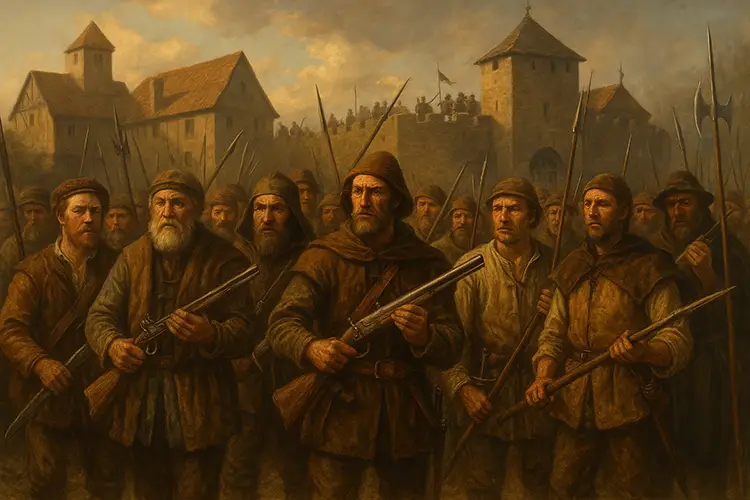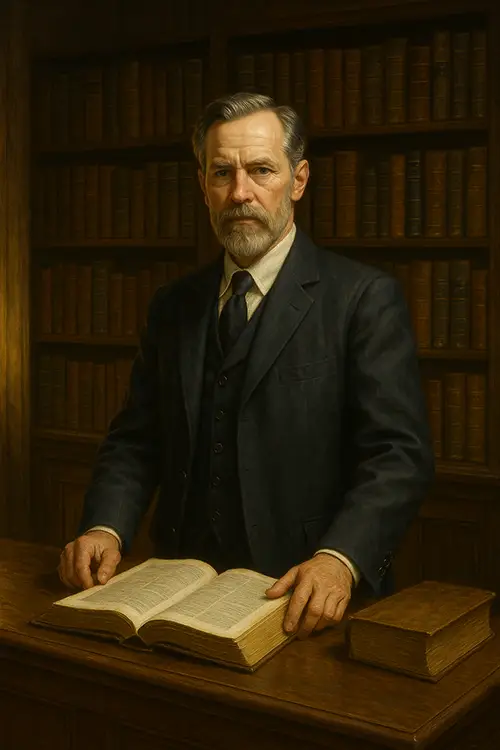Chaos Reigns Part II: The Story Behind the Second Amendment
“A well-regulated Militia, being necessary to the security of a free State, the right of the people to keep and bear Arms shall not be infringed.”
That line, two centuries old, still ignites headlines, fills courtrooms, and shapes the lives of people charged with gun crimes right here in Greensboro. But if you want to understand what the Second Amendment really means today, especially after the Supreme Court’s Bruen decision, you need more than a surface reading. You need context. And a little history.
Facing Gun Charges? Here’s Why the Law May Be on Your Side
A Right Forged in Fear and Fire
Long before the Founders wrote the Second Amendment, the concept of an armed citizenry had already taken root in the West. During the Roman Empire, Emperor Diocletian authorized local militias, known as “limitanei,” to defend the frontiers against invading tribes. These weren’t standing armies. They were ordinary people, farmers, blacksmiths, and shepherds, who kept weapons not for sport, but for survival.
That tradition sailed into medieval England, where Viking ships loomed on the horizon and town bells called neighbors to arms. There was no cavalry coming. Defense was a community affair. A duty. A right.
This is the historical context of the world the Founders were familiar with. This is what they meant by “militia.”


The Magna Carta and the Right to Push Back
In 1215, after a brutal civil war, England’s barons forced King John to sign the Magna Carta, a declaration that power had limits, and the people had a right to resist tyranny. One clause even ordered foreign mercenaries expelled from the kingdom, placing the safety of the realm back in the hands of its own people.
But that right was never universal. By 1328, most citizens were barred from carrying arms in public. The privilege to possess a weapon became tied to status and allegiance.
When the English Bill of Rights was signed in 1689, it granted Protestants the limited right to bear arms. That’s the historical checkpoint the U.S. Supreme Court now uses in decisions like Heller and Bruen, conveniently skipping centuries of community-based defense and civic resistance.
Bruen, Range, and the Present
In 2022, Bruen shifted the legal ground. The Court held that gun regulations must be judged against the nation’s “historical tradition.” If there wasn’t a comparable law in the 18th or 19th century, modern restrictions are likely unconstitutional.
The ripple effects are real, especially for those facing firearm charges in Greensboro or seeking to restore gun rights in North Carolina.
Take the Range case. A nonviolent felon challenged a lifetime federal gun ban. The court sided with him. Why? While the Founders restricted violent individuals, there’s no record of them stripping rights from everyone with a criminal conviction. That kind of blanket ban just didn’t exist back then.
It matters because it means certain Greensboro gun charges, especially those tied to prior convictions, may not hold up under today’s constitutional lens.


Where We Stand
At Dummit Fradin, we’re not just watching this shift; we’re part of it. We’ve stood beside clients in North Carolina courtrooms and argued successfully that the government can’t regulate what history never restricted.
No, the Supreme Court’s historical framing isn’t perfect. But it’s the tool we’ve been handed, and we know how to use it.
Your Right. Your Case. Your Future.
If you’re facing gun possession charges in Greensboro or if you’ve lost your firearm rights due to a prior conviction, this is the moment to act. The law is evolving. The courts are listening. And the ground is more favorable than it’s been in decades.
You don’t need to face it alone.
Contact our Greensboro criminal defense attorneys today. Let’s talk about your story, your rights, and what it might look like to reclaim them, together.
For more information or for other service areas, please visit our Greensboro Office page.

